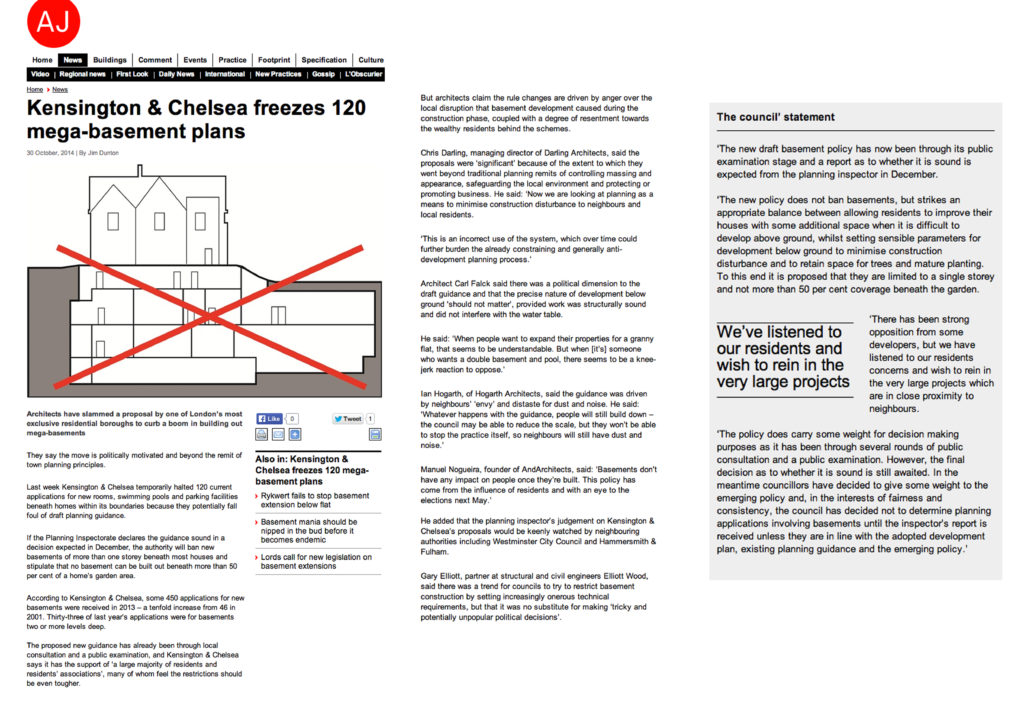BLOG
INTERESTING STUFF
THAT CAUGHT OUR EYE
Basements Are Brilliant – Why is Kensington and Chelsea Blocking Them?

Amongst widespread resident concern, the Royal Borough of Kensington and Chelsea have frozen development on 120 applications for basement extensions while they examine a new policy to be finalised in December.
If passed, the proposals will ban basements extending below one storey underground and limit the extent to which they can expand beneath the garden. Many developers have spoken against this move, and I share their sentiments.
There are numerous benefits to basement extensions, especially in crowded urban areas. They have minimal impact on neighbour amenity, unlike lofts and garden extensions that risk blocking light, and don’t reduce precious green space.
In conservation areas they can be doubly valuable as they remove the need to alter the visible portion of a house, preventing idyllic streetscapes from being spoiled by unsightly modifications while listed buildings can preserve the entirety of their existing structure.
Modern basements are a far cry from the dark and dingy spaces the word evokes. Advances in ventilation and low cost lighting technology along with design features such as light wells have revolutionised basements into entirely liveable, comfortable spaces.
We’ve built basements that house media rooms, kitchens and even swimming pools. They’re versatile, convenient spaces that can modernise a house without visibly adding to it or tearing it apart.
So why the controversy?
Much of the concern around basement development is rooted in fear that it may weaken the structural integrity of surrounding structures, disrupt the water table and damage infrastructure.
While the implications of large scale subterranean developments needs to be taken seriously, for individual projects there is no cause for concern if the necessary experts a brought in to consult on a project.
From day one of planning a basement project we work with everyone from archaeologists and surveyors to ecologists and arboriculturalists to ensure compliance, safety and quality.
Such measures are already mandatory to gain planning approval but there seems to be no silencing local outcry over basement builds.
Some speculate that it is simply resentment for a category of development seen as a luxury, while others say neighbours would simply rather not be inconvenienced by the building works.
Either way, it’s short sighted. Homeowners aren’t going to stop wanting and needing to expand their spaces and while basement developments may inconvenience neighbours in the short term, in the long run they have the least impact on the townscape.
Kensington and Chelsea can maintain their much desired, classic appearance while raising the value and quality of the housing stock – good for homeowners across the borough.
I suspect if this policy does become set in stone, the residents who blocked basements will be just as appalled by the resultant surge in loft and rear extensions.
By Oliver Brown

